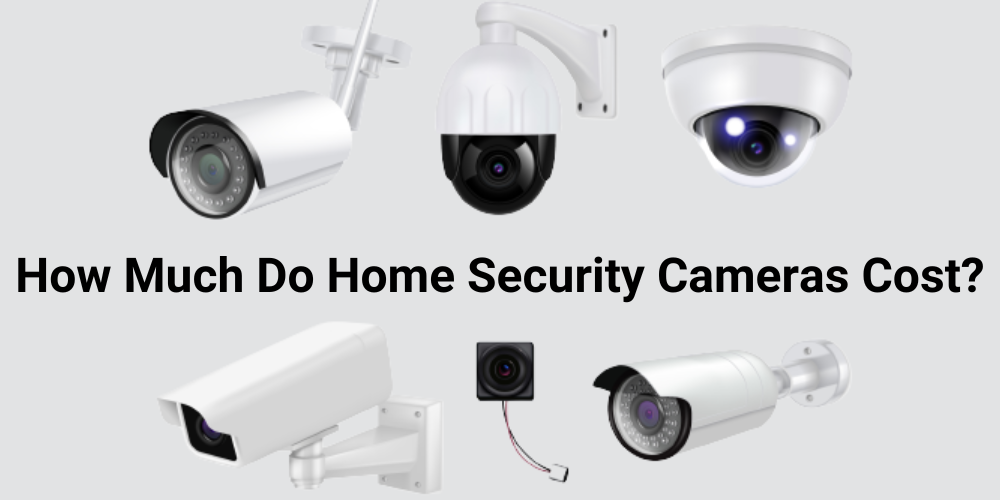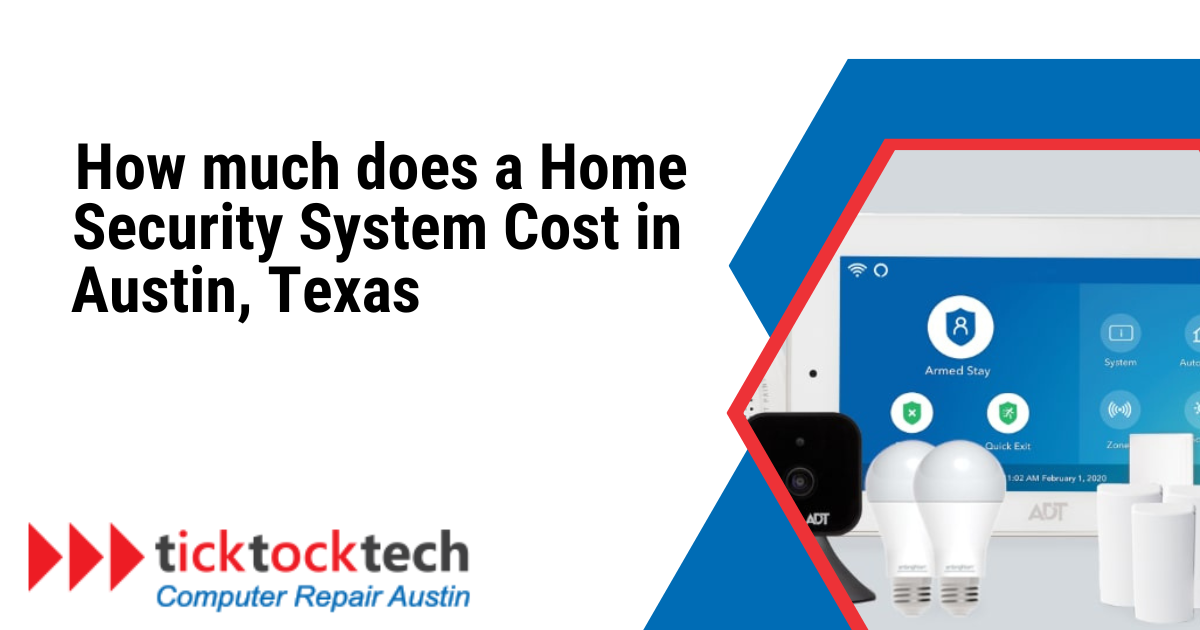About 3,300 Americans get burgled daily according to data from the FBI. That’s right, those stats paint quite a grim picture. Not to worry though, thanks to home security systems, there’s quite literally light at the end of this tunnel.
According to a UNC Charlotte research study, most burglars(60%) opt to avoid homes where they determine a security system is present.
A home security system acts as a vigilant sentinel, providing peace of mind and deterring potential intruders. But with a lot options available, understanding the cost of a home security system can be a hassle.
This comprehensive guide aims to unravel home security system pricing, empowering you to make informed decisions that align with your budget and security requirements.
How Much Do Home Security Systems Cost?
Determining the total cost of a home security system involves considering four key expenses.
First, there’s the hardware cost, covering the purchase of components like cameras, sensors, smart devices, and lighting. Wireless systems range from $200 for basic setups to $2,000 for comprehensive packages, while wired systems are a bit cheaper but may have higher installation costs.
Next is the installation cost, the price for setting up and connecting the system in your home. This typically ranges from $100 to $600. Some systems allow for DIY installation, potentially waiving installation fees with certain security companies.
Activation fees might apply for monitored systems, but they usually don’t exceed $300. Some companies even waive these fees depending on the service chosen.
Finally, there are monthly fees for professional monitoring, which vary from $10 to $65. While self-monitoring is an option for some systems at little to no cost, professional monitoring offers an extra layer of security.
How Much Do Home Security Cameras Cost?
The price range for top Home Security Cameras in 2023 varies from $30 to $500, influenced by features, models, and video storage options.
If you prefer a standalone camera setup without a full home security system, these cameras offer flexibility.

Whether you need coverage at entry points or a video doorbell for monitoring arrivals, they serve various purposes and can later integrate into a complete security system.
Home security cameras can be wired or wireless, depending on their power source and installation method.
Related: How Much Should a Smart Home Cost in the US
Opting for a camera with easy installation, such as adhesive backing or minimal screws, can save on DIY setup costs.
Some video monitoring plans may be costly, especially when covering multiple entry points or pairing outdoor cameras with spotlights for enhanced night vision.
Additional Cost Considerations
When buying a home security system, keep in mind potential additional costs:
Alarm permits
Many areas require a permit when you buy a home security alarm. These permits register your system with local fire and police departments, reducing false alarms and ensuring swift homeowner contact.
System maintenance
Maintaining a home security system is generally inexpensive and typically involves only occasional battery replacements every one or two years. Equipment malfunctions are often covered by warranties, sparing you additional costs.
Cancellation fees
Contract-based systems might entail fees for early termination. Companies may also charge a percentage or the full balance of the contract. Always review the contract details before signing to understand cancellation charges.
DIY vs. Professional Home Security Systems
When it comes to functionality, there’s not much separating a professionally installed system from a DIY kit. The real distinctions lie in the support available for your system and the peace of mind it brings.
1. DIY Systems
DIY home security systems are usually wireless, utilizing your home’s Wi-Fi for connectivity, making installation easier compared to wired systems. While some DIY systems can be professionally monitored, many function well when self-monitored.
Pros:
- Cost-effective compared to professional systems, with lower installation costs.
- To upgrade is convenient and usually involves only purchasing new equipment.
- Portable systems allow for setup changes or relocation to a new home.
Cons:
- Adding components individually might incur higher costs.
- Installation mistakes could occur.
- Limited support is available for system assistance.
2. Professionally installed systems
Professionally installed security systems, while sometimes more comprehensive than DIY setups, offer additional advantages.
These systems can be either wired or wireless, and although you can hire a professional to install a DIY system, professionally installed systems are typically managed remotely.
Pros:
- Tailored to fit your specific home’s needs.
- Professional installation ensures accuracy and includes warranties for parts and labor.
- Generally sold as complete, robust packages
Cons:
- Home-specific setups are challenging to relocate.
- Higher initial costs for purchase and installation.
- Expansion may involve significant additional expenses.
Related: Smart Home Frequent Issues and How to Fix Them
Considerations for a Home Security System
When choosing a home security system, certain qualities ensure it meets you and your family’s needs when it comes to staying protected. Here’s what to consider:
Reliability
Ensure the system and monitoring offer self-testing capabilities or alerts for malfunctions to guarantee its proper function.
Ease of Use
Opt for components and monitoring apps that are user-friendly and convenient for everyday use. You should try as much as possible to avoid systems with complex modules as this can easily lead to neglect.
Compatibility
Prioritize systems compatible with smart home apps and devices for added convenience and an extra layer of security. Your ideal home security system should allow remote control without compromising protection.
Introducing TickTockTech: Your Home Security System Support in Austin
With an abundance of home security system options available, making an informed decision can be overwhelming. TickTockTech, a leading IT company in Austin, simplifies the process by providing comprehensive home security system support, catering to your unique needs.
Our team of experienced IT professionals will guide you through the entire process, from assessing your security requirements to selecting the most suitable system and ensuring its seamless installation. We also offer ongoing maintenance and support, ensuring your system remains in top working condition, and providing you with the peace of mind you deserve.
Contact TickTockTech’s Tech Support today to discuss your home security needs and experience the difference that personalized IT support can make. Let us help you create a safe and secure haven for you and your loved ones.

